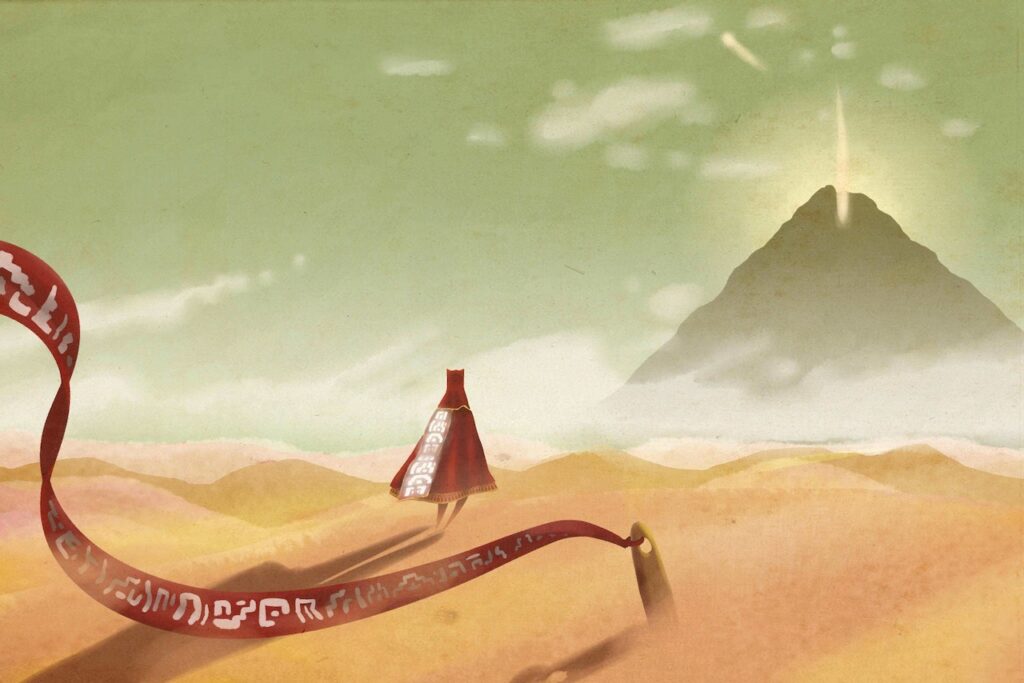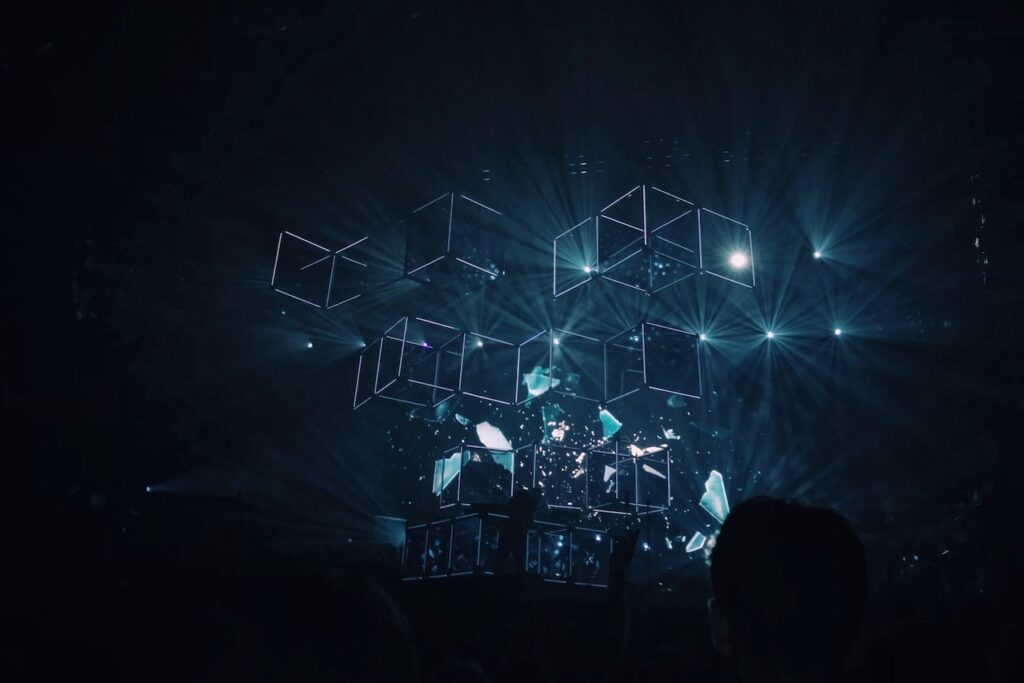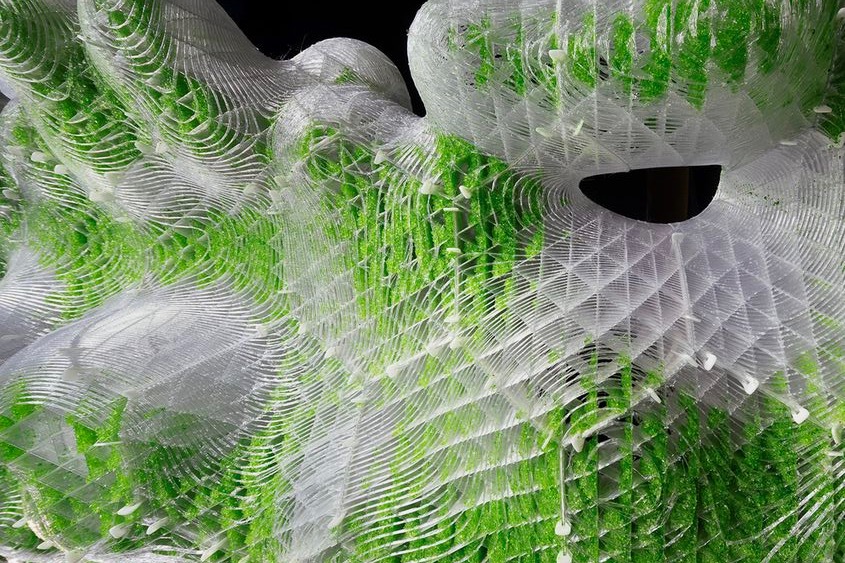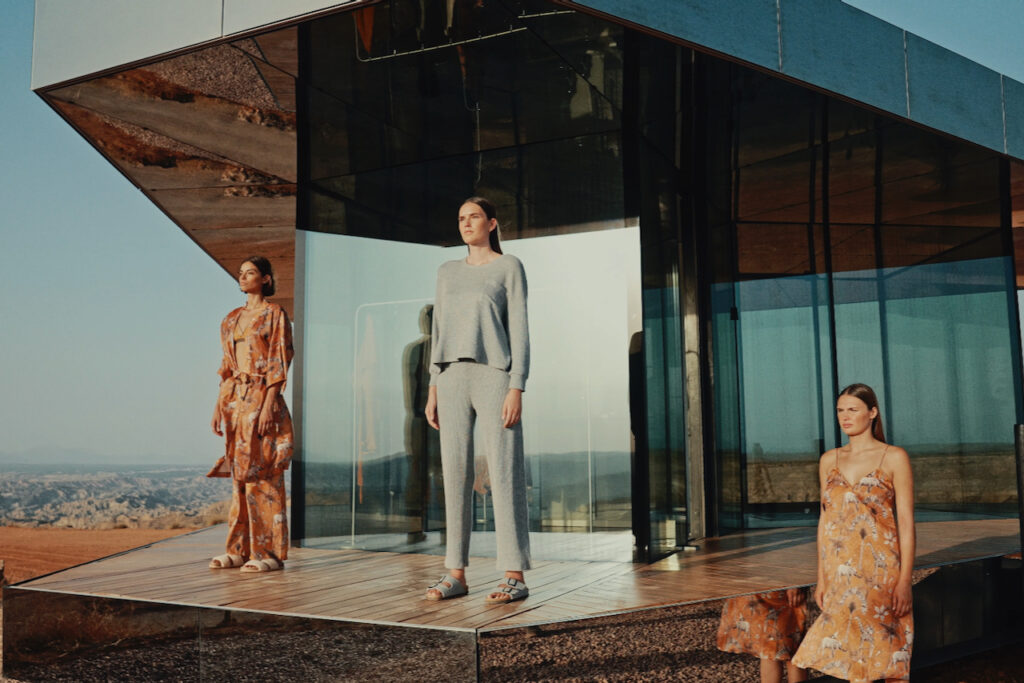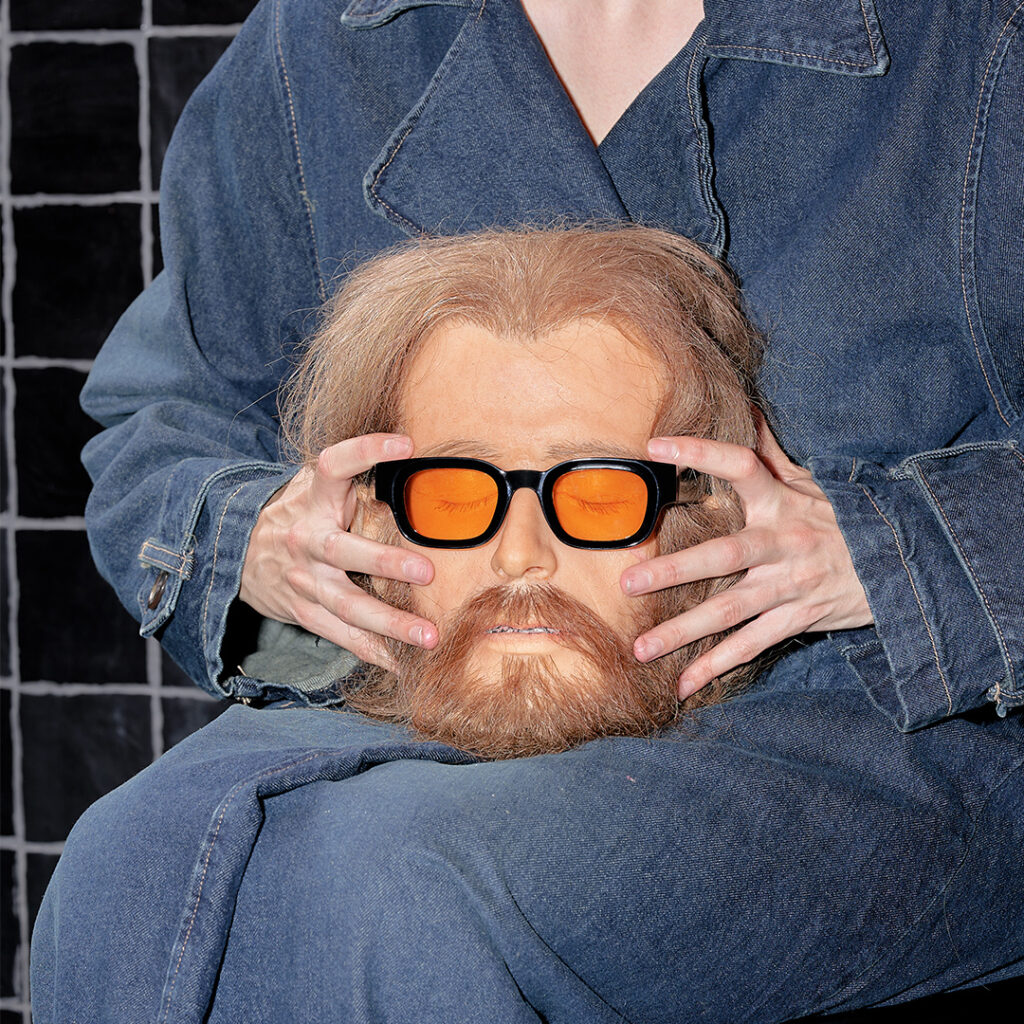The Metaverse can be a confusing place. But what we know for sure is that NFTs and digital fashion are increasingly gaining traction in the industry. Although for the most part, we feel that after a couple of years of walking this path we have accumulated a good deal of knowledge and understanding of the subject matter, we relish every opportunity we have to dive into the entrails of the digi-verse hand in hand with experts of the realm. As such, you can imagine how excited we were to sit down for a chat with Highsnobiety’s NFT Studio Director Jürgen Alker.
And since sharing is caring, and oh do we care about y’all… Read on to take a stroll with us along the riverbed of possibilities that the Metaverse, digital fashion, and Web 3 lay at our feet.
How did you get into NFTs? Have you always been digitally inclined?
I feel like 26, 27 years of my working career were condensed into something that I started to fully understand early in 2021. So I’m coming, on the one hand, from a brand background. I’ve worked in agencies and have been responsible for brands myself very much in the whole streetwear lifestyle industry. I was partly responsible for Eastpak and the mid-nineties. We did the Stüssy distribution so this was the first time I learned about streetwear, and how all of that works. Later on, I was responsible for Dickies and for global collaborations. And I learned and met a lot of the people within the streetwear industry, like Jeff Staples, Supreme, Palace, Michael Kopelman… A lot of those people.
And I learned a lot about drops and scarcity. And why do people stand in line for a t-shirt and why it is resold at Stock X for ten times the money when there are enough t-shirts that we can all buy? At the same time, I also had an interest in technology and I knew mobile was going to be big because the digital change was going to happen. So I started the mobile agency in 2010, sold that in 2015, 2017 we sold that big agency to Accenture and at the end of 2020 I thought, okay, what do I do next? What do I want to do? So I took the full year of 2021 to decide “What’s next for me?”. As I was sitting there and I started reading a few articles because I bought my first Bitcoin in 2013. I read a few great articles and the main article that made it all click after 27 years of my career was the article from Bobby hundreds about NFTs, crypto media and the next internet.
Do you think digital fashion will ever achieve the same status as far as class, quality, respectability go, as physical fashion?
Of course, I can’t say for sure because nobody knows the future. But I think it’s a reality that kids these days spend a lot of time on the internet. I just read a survey that 50% of kids in the US said they’re almost always online. So for them, the internet is always there. They don’t check their emails five times a day or Instagram five times a day, they’re on it all the time.
So that means that the more time you spend with digital, the more important your digital identity and what it looks like becomes. When kids go to school, they see maybe 20, 30, 40 friends, but if they hang out in Roblox or on Instagram or any other online platform they might have 500 followers, 5,000 followers. 5,000 people watching what they do, how they behave, what they wear, and how they look like.
So I think in general, online identity will become even more important because so many people can see it. If that is the case, then of course people will wonder: How do I look? What is my appearance? How can I look more interesting, engaging, and different from everyone else? Do I always buy real fashion because I need it for my TikTok feed and then I send it back? Or do I buy virtual fashion for a few Euros that I can basically change the colour, dress it on myself, and do different poses?
Technology will advance. It will look pretty good, I think. And why shouldn’t kids do that? Why shouldn’t kids spend time with that? And why shouldn’t they be able to flex a virtual jacket that is only available 10 times and all their friends know, damn she got that jacket from that drop?

And maybe digital fashion is even more creative than real fashion because you don’t have any physics, you know. I can wear a jacket that has sparkling stuff coming out of me all the time, which is impossible with a real jacket. So I think right now people just try to bring stuff we know into the digital world, but what can happen when creative minds start simply designing for that medium? It can mean anything, it’s not stuck to rules that physics gives us and materials. So that could be a really interesting way. Probably for a lot of people to even express who they are more, what they think, what they like …etc.
How do you think NFT sales will affect physical sales in the future?
For now, that’s hard to imagine, you know, there are so many people in the world, everyone needs socks and underwear every single day and you still go out and you don’t wanna look like rubbish when you go out. So I don’t think it’s going to have a massive effect on sales as far as sales going down goes, but maybe we will see a little less fast fashion because you can have that fast fashion look every single day on TikTok. You’ll have your basic good quality wardrobe when you go to school and have your proper air Jordans when you go out, you’ll still need those.
People will still like that, but maybe you don’t need a different look every single week. Perhaps virtual fashion could substitute that a little bit, but not totally.
We see a lot of brands opening up to the metaverse and diving into it. Is it a smart move? How can a brand take care of the traditional audience while expanding into the metaverse too?
What I found interesting was that the fashion industry is quite early in going into that space. It was surprising a little bit to me, that they already experiment with it and that you had really high-ranking CEOs from Gucci, Tiffany and other, basically saying “This is interesting, this is great, we should do something with it”.
It’s a good strategy to learn and to try something out. And I think nobody is doing it yet because it will be the biggest revenue booster one day. But few companies also understand that it’s not just a marketing gimmick, so you can do certain things, it could be an additional business model.
Like DressX which was founded to investigate all of this. They thought: Is this something we don’t want to miss out on? So they build a platform where people can buy virtual fashion. At the very least it’s interesting to explore. And I think this is already good news, them being open and keen to try things out.
Few brands realized it’s really hard to get your existing audience to buy these digital assets, because mostly they are not Web3 savvy and they don’t know how to use a wallet among other things, because the UX is a little bad. You somehow need to find a way to talk to this new Web3 community to bring that to your brand. But at the same time, probably they realize that you need to educate your existing audience. You need to bring them along for the ride. That will take quite some time. I think expectations are not sky high that in two years 50% of the revenue will come out of digital fashion. Slowly but surely.
What do you think the major changes brought about by Web3 will be for businesses? How about consumers? Do you think Web3 is going to drastically change the way we use the internet? If so, how?
Right now it’s just a vision of Web3. The idea is that we’ll have a decentralized web that is owned by everyone and we will benefit from everything… etc. I’m not sure if this is going to happen because you still have these big players. There’s a lot of money in play. You have big VCs investing in Web3 companies. So why do they do that? Because they wanna make a lot of money with it. And if people wanna make money, they will probably always find more centralized business cases. So I’m not too sure about, the idea that in, say 2025, Web2 will be turned off and we will all wake up, in a decentralized, super beautiful Web3 world. But I think a lot of the elements will get into it because I think creators realize that they’re creating all the value.
You’re a musician you’re making Spotify rich. You’re a photographer you make Instagram rich because you don’t get anything from the Instagram revenues. You need to do advertising in your stream so that you get some money. So I could imagine that some smart people will start developing something where I don’t know, 80% of the revenue will be profit for the creator and you get paid because their posts are being clicked on like hell and advertising in their stream sales. And then only 20% is kept to run the company behind it. So I think we will see those elements because I think a lot of creators will realize that they are creating all the value and they will ask more and more questions regarding what’s in it for them. And if they move on, the audience moves with them and where the audience is, that’s where the money and the revenue go.
So I think we will see quite a few elements and I think they’re already great and smart minds working on all the different solutions. I buy a band’s NFT for example and get early access, or I can get access to a listening session, or they invite me into their closed Discord. I think it is super smart to build stuff around the community. Is this threatening Spotify today? No. But what happens if more and more and more artists go in that direction because that might be even more lucrative for them, even if they just have a small audience? If they have a loyal audience that’s interested in buying a 100EUR NFT to fund a new album then that’s a great resource, perhaps better than being on Spotify.
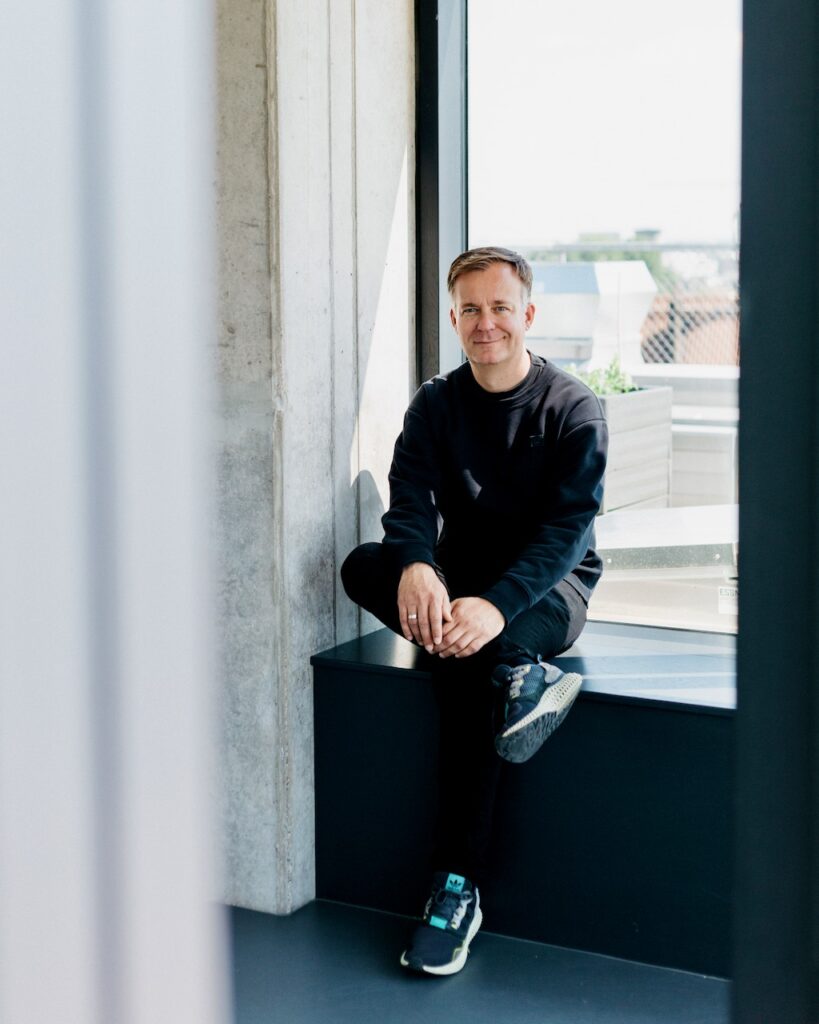
How can legacy brands maintain their status on their own in the metaverse? Will they have to build a new digital reputation from the ground up competing with start-ups and industry giants alike? Or will they need to take over smaller ventures in order to buy their way in like Nike did with RTFKT?
I think it’s always smart. It’s a smart move by Nike to buy a fast, fast, little ship like RTFKT to try out all the stuff. And then Nike can look at all the learnings and look at what it means for the main brand for Nike and Jordan and Converse. So I think that’s pretty smart, but of course, it’s, you know, a lifestyle brand. Like the other brands that Nike owns and yes, the technology behind it is different but was RTFKT ever a decentralized company where we all own the company and where we have a share and we have a say about where it goes? Probably not. But I never expected that. Still, I’m seeing a lot of talent being attracted by the general idea of Web3.
A lot of young talent is a little tired of working for those giants. That’s a bigger problem for them. If they don’t find enough talent who can build the future for Facebook and Google and all of those, those people rather sit with their laptop somewhere and develop something on a weird blockchain and they develop a new whatever and they build those innovative companies. That is a bigger threat. I’m seeing a lot of interesting, smart people despite the whole beer market and despite all the scams and greed from a lot of people in that space. I’m also seeing a lot of young cool people who say, okay, I’m 22. I need a laptop. I can go to Portugal, Dubai, or wherever I want to, there’s a community. We connect, we build something together and all I need is, I don’t know, $50 a day to have a good living. So let’s build something cool. No, I don’t want to work for these giants. That’s not my style. So I think this is interesting.
What does your job as Highsnobiety’s NFT Studio Director entail? What role do you think Highsnobiety’s NFT Studio will play in the industry going forward? What is the game plan? What is the goal?
I think my main job is to be a sparring partner for everyone inside the company, to understand the space, to get excited about the space because I have the fortune to have spent the whole of 2021 going down into I don’t know how many rabbit holes. As an average person, it’s a little harder to do that if you don’t have the time. So I’m doing a lot of sparing education, getting people excited, discussing opportunities, and showing what could be in it.
Highsnobiety is a place where stuff is curated and where we write about stuff that certain filters fit. We don’t write about anything and everything, and we don’t sell just any product on our side. Rather it’s more about how we look at that space. What is our opinion on NFTs? What projects would we like to write about? Which projects would we like to collaborate with?
How do we integrate that into what we do as a company? What do we do if we have a physical drop? If we do our own apparel, should we think about virtual drops as well? Should we have virtual fashion or do we have, you know, this digital bridge and make NFTs into clothing and bridge the gap to digital with that? So what can we build around that?
Luckily, you know, we are not under pressure to have something overnight. And of course, we’re also learning as we go and that’s why we built something like the Not in Paris NFT drop, which was really fun to do, to go through the whole experience from legal issues to taxes.
So what does it mean for the creative team? How do you create an NFT or how do you create a virtual space? What does a virtual popup store look like? That was a totally new creative challenge for the team. How do you communicate that? And how do we want to use Discord? We haven’t had Discord before, so we set it up and then what do we actually do inside of it from a Highsnobiety standpoint?
That’s why it feels a little like what I said initially, I’m a sparring partner bringing a few new people onboard, but mainly bringing this idea and knowledge inside the company. So that in a few years from now, it will just feel as natural as what we do today and not go crazy overnight. We don’t need to drop 10,000 NFTs for one Ethereum and promise everyone in the world everything. No, we do it step by step and integrate it in a way that fits our brand. It has to add something valuable so that we are not just jumping on the next fancy train.
I think at the bull market in February, we could have sold anything, but we didn’t. We took the time to learn. We are talking to so many people to so many companies who approach us, who we approach to get our heads around it. And, and that’s really an interesting journey for myself and also for, I hope, most of the rest of the company.
The NFT market has notably been dropping for the past few months. Many say that this is due to the fact it was nothing but a skyrocketing bubble in the first place that was going to burst eventually. Are NFTs, the Metaverse, and crypto truly going to have the impact that was initially anticipated last year? Will they be relevant but not imperative? Or will they be a niche that will work in its own world?
Yeah. I think it will. At Highsnobiety we think it will be relevant, we didn’t cancel our Not in Paris drop despite the downturn of the market. And I think our initial hypothesis remains valid. There’s interesting technology and you can do a lot of interesting things with it. We still don’t know just how much or what exactly we can do with it. I think we’re scratching the surface of it all, with use cases and with what you can do around all of those technologies. If you don’t learn today, you will never experience what that could look like. So we never thought that “okay, now the market is done”. If we pull out, will it go back to where it was three, or four months ago? Will it take much longer to get as big again? Will it be 10 times bigger? I think it won’t stay in a niche, but I don’t know how long it will take to go back up.
If you had to make a few predictions as far as the future of NFTs and Fashion in the Metaverse go, what would they be?
For now, all I can project is I think it’s not going to go away. I think a lot of smart and creative people will create stuff that we can’t imagine today. And I’m happy to come along for that ride. I’m curious, and I think everyone should be. Have a little curiosity to at least watch and learn. Then you can decide, is there something in this for me or not really? Or do I do something else?
